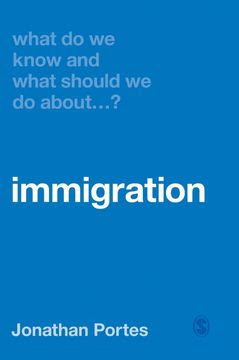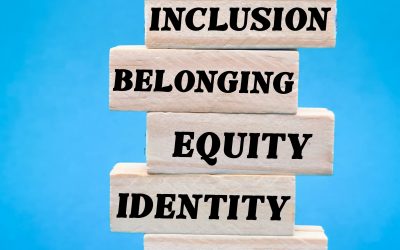By Bushra Mukadam
Standfirst: An easy and enlightening read, Jonathan Portes’ book cuts through the myths about immigration with clarity and humanity and for me, it hit especially close to home.
This excellent book isn’t one of those heavy academic tomes you dread picking up. It’s a short, sharp guide to immigration in the United Kingdom (UK) – how it’s shaped our country, what it actually does to jobs and wages, and why it’s so politically explosive. Portes is an economist who’s worked at the Treasury and Cabinet Office, so he knows the data inside out, but he also writes like someone who understands the human side too.
The book takes you from history (the Norman Conquest, Windrush; East African Asians) to today’s headlines about “small boats” and Brexit. Along the way, it busts myths like the idea that immigrants steal jobs or drain the system and asks a harder question: what kind of immigration system do we actually want?
The first theme that jumped out was Portes’ demolition of the “lump of labour fallacy” – the belief that there’s only a fixed number of jobs. It’s one of those ideas that sounds logical until you think about how economies really work. Immigrants don’t just fill jobs, they create demand, spend money, and pay taxes. They expand the pie.
The section on refugees, especially East African Asians expelled from Uganda in the 1970s, hit me differently. Prof Portes shows how people who arrived with nothing went on to thrive: today, their educational and economic outcomes often surpass both locals and other immigrant groups. But what stuck with me personally is that I’ve seen this story up close. Back in India, my neighbours had relatives in Uganda who lost everything overnight when the expulsion” took hold. It wasn’t just politics – it was racial, discriminatory and cruel. Families left with literally nothing, stripped of their homes and dignity. Some of them rebuilt in the UK, but that history of being scapegoated still hurts to think about.
And then there’s the chapter on remittances, which really resonated with me. My dad worked unbelievably hard for twenty years, and for most of that time, before my mum, siblings, and I moved to London, he sent money back to India to support the whole family. That money wasn’t just cash, it was stability, opportunity; a lifeline. Portes explains how remittances shape economies back home made me reflect on how deeply personal these “global flows” actually are.
So much of this book still applies now, in 2025. Take the debate about benefits. Even before Brexit, there was a narrative that EU migrants were “benefit tourists.” It was exaggerated then and it’s exaggerated now for non-EU migrants. Sure, there will always be cases, but the reality is most people move to work, not to sit on benefits. And yet, the racial undertones of these debates remain – who gets portrayed as a “hard worker” versus who gets painted as a “drain”?
Brexit changed the system, but it didn’t settle the arguments. Free movement is gone, replaced with a points-based system. Politicians claim this gives Britain control, but the same contradictions remain: our economy needs migrant workers in care homes, construction, and agriculture, but our politics vilifies them. Portes highlights these trade-offs and asks us to face them honestly.
What worries me most today is the way “reform” is talked about – or rather, weaponised. Governments dress up hostile policies in the language of fairness and control, however, often the impact is that it makes life unlivable for migrants including refugees. Think of the Rwanda plan, or even the bureaucratic cruelty of the “hostile environment.” It diminishes people of their humanity and their stories, reducing them to numbers in a debate. Reading Portes, I kept thinking: immigration policy should be about managing flows and opportunities, yes, but it should also be about dignity.
Immigration isn’t abstract for me. It’s personal. My family is here because of migration. My dad’s remittances kept us afloat. My neighbours’ stories of Uganda remind me of how easily communities can be targeted. Growing up in London, I’ve seen how diversity doesn’t weaken a country – it enriches it. I work near the South Bank, and on a short walk I’ll hear five languages, pass a Polish café next to a Somali grocer next to a Bangladeshi curry house. That’s Britain to me.
At the same time, I can’t ignore how fear and resentment get whipped up. It’s not just frustrating – it’s dehumanising. That’s why Portes’ book struck me: it’s grounded in evidence but it never forgets that immigrants are people first. His reminder that integration is possible – and that we’ve done it before – gave me a kind of cautious optimism.
Why I think you should read it:
Most conversations about immigration turn into either shouting matches or confusing jargon. This book avoids both. It’s written clearly, it’s short enough to finish on a commute, and it gives you the facts you need to push back against the myths. More than that, it makes you think about the kind of country we want to be.
For me, it tied together economics, politics, and personal stories in a way that felt both challenging and hopeful. If you’ve ever found yourself stuck in the noise of the immigration debate, this book cuts straight through it.
Final thoughts:
Immigration will remain at the centre of British politics, no matter who’s in government. The question is whether we tackle it with honesty and humanity, or with fear and scapegoating. Portes doesn’t give you all the answers, but he does give you a way to ask better questions.
You can find What Do We Know and What Should We Do About Immigration? (SAGE, 2022) here .







